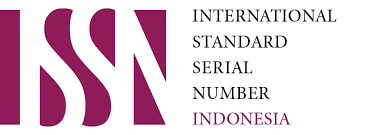Islamic Economic Review of Waste Circular Economy Policy Analysis at the Metro City Environmental Service
DOI:
https://doi.org/10.24252/iqtisaduna.v11i1.57354Keywords:
Circular Economics, Garbage Management, Metro City, Environmental ServicesAbstract
This research aims to analyze the implementation of circular economy policy in waste management in Metro City and examine its relationship with Islamic economic principles. A circular economy is a strategic approach to creating a sustainable waste management system through seven main principles: reduce, reuse, recycle, recover, redesign, extended producer responsibility (EPR), and collaborative participation. Using a qualitative approach through observation, interviews, and documentation, this study found that the principles of reduce, reuse, and recycle have been implemented effectively thanks to education and community participation. Meanwhile, the principles of recovery and EPR still face obstacles, especially related to technological limitations and the non-optimal role of producers. From an Islamic economic perspective, implementing the circular economy aligns with the values of maslahah, Amanah, and khalifah fil arch, emphasizing the importance of responsible and equitable resource management. Thus, the circular economy has ecological and economic impacts and reflects Islamic spiritual ethics in protecting the environment and empowering communities.
Downloads
References
Bappenas. (2022). Modul Ajar 4 - Penerapan Ekonomi Sirkular Di Indonesia. 4, 1–48. https://www.undp.org/indonesia/publications/modul-1-6-circular-economy
Fasa, A. W. H. (2021). Aspek Hukum Dan Kebijakan Pemerintah Indonesia Mengenai Ekonomi Sirkular Dalam Rangka Mencapai Tujuan Pembangunan Berkelanjutan. Jurnal Rechts Vinding: Media Pembinaan Hukum Nasional, 10(3), 339–357. https://doi.org/10.1016/j.
Geissdoerfer, M., Savaget, P., Bocken, N. M. P., & Hultink, E. J. (2017a). The Circular Economy – A new sustainability paradigm? Journal of Cleaner Production, 143(0), 757–768. https://doi.org/10.1016/j.jclepro.2016.12.048
Geissdoerfer, M., Savaget, P., Bocken, N. M. P., & Hultink, E. J. (2017b). The Circular Economy – A new sustainability paradigm? Journal of Cleaner Production, 143(April 2018), 757–768. https://doi.org/10.1016/j.jclepro.2016.12.048
Ghisellini, P., Cialani, C., & Ulgiati, S. (2016). A review on circular economy: The expected transition to a balanced interplay of environmental and economic systems. Journal of Cleaner Production, 114, 11–32. https://doi.org/10.1016/j.jclepro.2015.09.007
Gueye, S. (2021). Completing the picture: How the circular economy tackles climate change. Ellen Macarthur Foundation. https://www.ellenmacarthurfoundation.org/completing-the-picture
Kirchherr, J., Reike, D., & Hekkert, M. (2017a). Conceptualizing the circular economy: An analysis of 114 definitions. Resources, Conservation and Recycling, 127, 221–232. https://doi.org/10.1016/j.resconrec.2017.09.005
Kirchherr, J., Reike, D., & Hekkert, M. (2017b). Conceptualizing the circular economy: An analysis of 114 definitions. Resources, Conservation and Recycling, 127(September), 221–232. https://doi.org/10.1016/j.resconrec.2017.09.005
Masson-Delmotte, V., Zhai, P., Pirani, A., et al. (2021). (n.d.). Climate Change 2021: The Physical Science Basis. Contribution of Working Group I to the Sixth Assessment Report of the Intergovernmental Panel on Climate Change. M.
Muanifah, S., & Cahyani, Y. (2021). Pengelolaan Bank Sampah Dalam Menumbuhkan Peluang Usaha Nasabah Bank Sampah. SCIENTIFIC JOURNAL OF REFLECTION : Economic, Accounting, Management and Business, 4(1), 150–159. https://doi.org/10.37481/sjr.v4i1.258
Norman, H. (2022). The Future is Circular. Consumer Electronics Test & Development, 2021(2), 6–7. https://doi.org/10.12968/s2754-7744(23)70067-5
Poornaiya, S. (2021). Circular economy. Water and Energy International, 64r(6), 32–34. https://doi.org/10.52899/978-5-88303-634-6_166
Purwanti, I. (2021). Konsep implementasi ekonomi sirkular dalam program bank sampah (Studi kasus: Keberlanjutan bank sampah Tanjung). Jurnal Manajemen Dan Ekonomi, 4(1), 89–98. https://jurnal.unugha.ac.id/index.php/amn/article/view/40/55
Rachmawati, I. N. (2007). Data Collection in Qualitative Research: Interviews. Indonesian Journal of Nursing, 11(1), 35–40.
Raihan, S., & Rahma, N. A. R. (2022). Ekonomi Sirkular 101 : Meninjau Definisi , Praktik , hingga Implikasi Kebijakan di Indonesia. DMKP Univesitas Gadjah Mada.
Setiawan, A. (2023). Implementasi EPR (Extended Producer Responsibility) di Indonesia: Peluang dan Tantangan. Kementrian Lingkungan Hidup Dan Kehutanan. https://info3r.menlhk.go.id/berita/detail/berita-15-v_berita
Sugiyono. (2016). Analisis data kualitatif. Analisis data kualitatif,. In Analisis Data Kualitatif. https://core.ac.uk/download/pdf/228075212.pdf
Walter R. Stahel. (2019). The circular economy. In Research Handbook on the Green Economy (Issue 2013). https://doi.org/10.36661/2596-142x.2019v1i1.10902
Yesti, K., Dakhi, F., Aryaningtyas, A. T., Pariwisata, P. S., Tinggi, S., Ekonomi, I., & Indonesia, P. (2025). Menyelami Daya Tarik Wisata Kuliner Tradisional Jawa-Manado di Resto Apung Kampoeng Rawa. 7(2), 213–223.
Zink, T., & Geyer, R. (2017). Circular Economy Rebound. Journal of Industrial Ecology, 21(3), 593–602. https://doi.org/10.1111/jiec.12545




